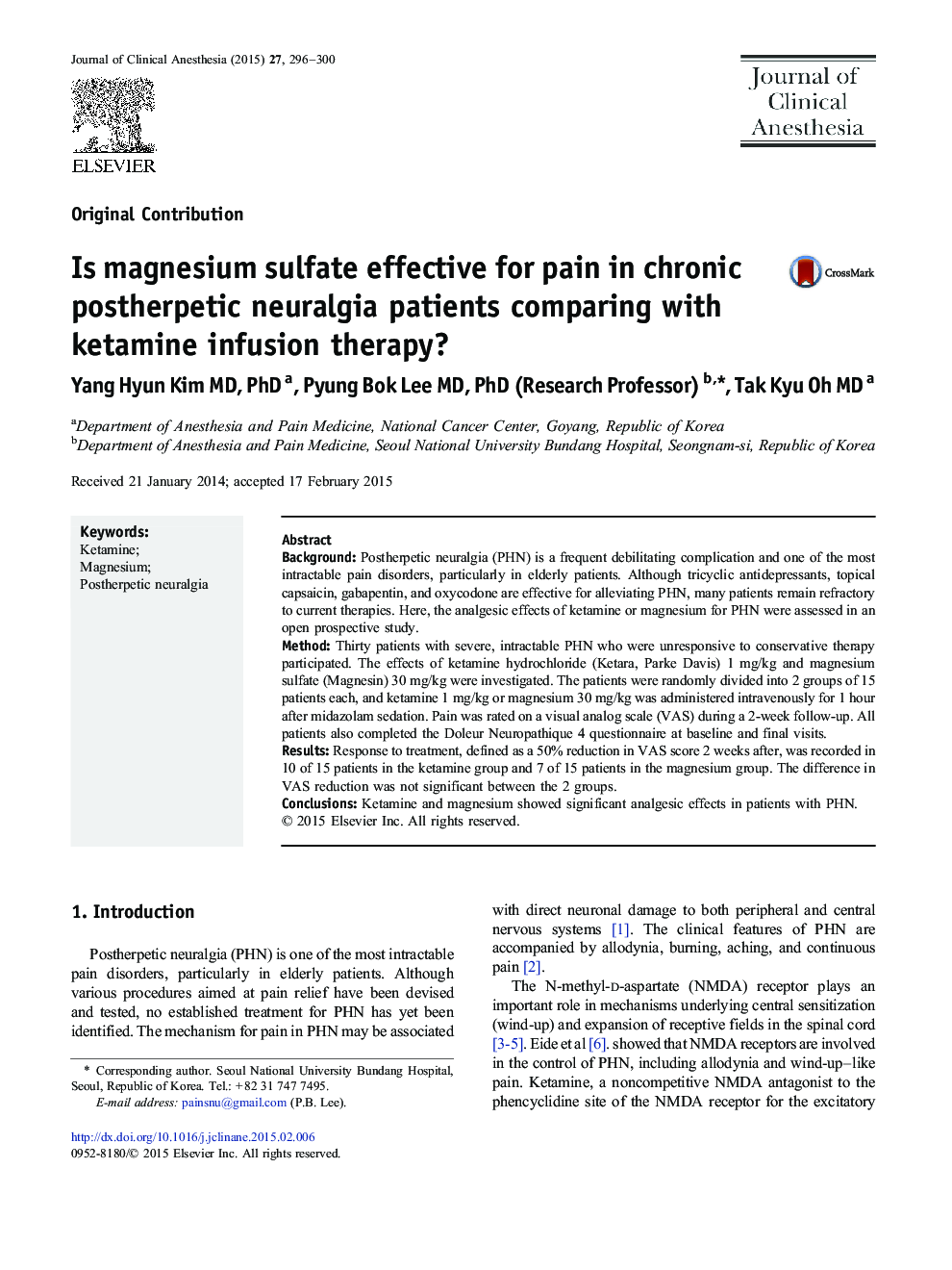| Article ID | Journal | Published Year | Pages | File Type |
|---|---|---|---|---|
| 2762646 | Journal of Clinical Anesthesia | 2015 | 5 Pages |
BackgroundPostherpetic neuralgia (PHN) is a frequent debilitating complication and one of the most intractable pain disorders, particularly in elderly patients. Although tricyclic antidepressants, topical capsaicin, gabapentin, and oxycodone are effective for alleviating PHN, many patients remain refractory to current therapies. Here, the analgesic effects of ketamine or magnesium for PHN were assessed in an open prospective study.MethodThirty patients with severe, intractable PHN who were unresponsive to conservative therapy participated. The effects of ketamine hydrochloride (Ketara, Parke Davis) 1 mg/kg and magnesium sulfate (Magnesin) 30 mg/kg were investigated. The patients were randomly divided into 2 groups of 15 patients each, and ketamine 1 mg/kg or magnesium 30 mg/kg was administered intravenously for 1 hour after midazolam sedation. Pain was rated on a visual analog scale (VAS) during a 2-week follow-up. All patients also completed the Doleur Neuropathique 4 questionnaire at baseline and final visits.ResultsResponse to treatment, defined as a 50% reduction in VAS score 2 weeks after, was recorded in 10 of 15 patients in the ketamine group and 7 of 15 patients in the magnesium group. The difference in VAS reduction was not significant between the 2 groups.ConclusionsKetamine and magnesium showed significant analgesic effects in patients with PHN.
